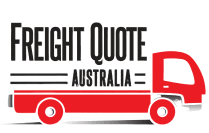A modern courier service is a professional organisation specialising in the prompt delivery of goods, business correspondence, and documents. Courier services are a viable alternative to traditional postal services, which in many cases can no longer satisfy the requirements of commercial enterprises and private citizens in terms of reliability and urgency of delivery of their shipments.
A reliable courier service is a fully-fledged partner which provides opportunities for the development and scaling of your business, including options to:
- expand the geography of presence;
- improve customer experiences.
A courier company’s prompt and timely deliveries may settle as the key point and distinguish them from their competitors.
How Courier Services Work
There are basic rules that all courier companies must adhere to in order to operate a sustainable business:
1. Delivery time and freight collection terms. It is necessary to be clear on what minimum delivery time companies are able to offer you. The sooner the courier company makes the delivery, the more likely that their clients will contact them in the future;
2. Guarantee of reliability. If the goods in transit are damaged by the courier company during the delivery process, it is unlikely that customers will return. Each package should be packed appropriately by the sender in advance.
3. Safety of the cargo. Most companies offer freight insurance, which provides the necessary protection from loss in the event of an accident or loss of goods in transit.
4. Receipt of delivery. Upon delivery, most professional courier companies will provide a paper or electronic receipt. This acts as proof of delivery time.
Being familiar with the above will help you decide which courier service to choose.
How Much Does a Courier Service Cost?
To find out how much it costs for courier services, you’ll need as a minimum for provide the courier company with the following information. The price for courier service will be determined mainly by the following:
- type of cargo;
dimensions of cargo (weight, height, volume etc.); - distance between point A and final point of delivery;
- amount of time for delivery (is it an urgent delivery or a regular one);
- shall insurance be included and what types of insurance for freight forwarders you are interested in;
- whether you prefer a personal cargo freight or your goods may be delivered as part of a combined cargo.
To check your freight cost you can always complete Freight Quote Australia’s Quote Request Form for a quick and convenient emailed quote.
Difference Between a Courier and Freight Forwarder
By definition, a freight forwarder is a specialist who organises the movement of freight using one or more contracted transport providers. Freight forwarders are typically able to give advice and recommendations to the customer at the expert level on the choice of the delivery route, the selection of the type of vehicles, and can provide informed delivery time estimates taking into account the numerous facts which can impact on the movement of freight.
It is commonly accepted that a courier is a person (or company) who physically collects the consignment, signs the accompanying documents, and delivers to the assigned address.

How Much is Freight Forwarding?
A freight forwarding price may vary depending on several key points which are quite similar to calculation components of courier service prices in general:
- type of goods that are to be delivered;
goods or cargo measurements (weight, height, volume, etc.); - pick-up and delivery points;
- are the goods being transported as part of a combined cargo or as a general cargo.
In addition, freight forwarders that deal with international freight will also need to charge costs relating to customs duties and related fees.

How Goods are Transported
Freight in Australia is transported in several ways, including:
- Road Transport: This is the most commonly used mode of transportation for freight in Australia. Trucks (like the Isuzu N-series truck) are used to transport goods from one place to another, either within the same state or between different states.
- Rail Transport: Australia has a large rail network that is used to transport freight, particularly for the transportation of bulk goods such as coal, iron ore, and grain.
- Sea Transport: Australia is surrounded by the ocean and has several major ports that are used to transport goods both domestically and internationally. Container ships and bulk carriers are the main types of vessels used to transport freight by sea.
- Air Transport: Air transport is used to transport time-sensitive and perishable goods, such as fresh produce, medical supplies, and electronics.
- Multimodal Transport: This refers to the use of multiple modes of transportation to move goods from one place to another. For example, a shipment of goods might be transported by road to a port, then loaded onto a container ship for the sea journey, and finally delivered by truck to its final destination.
Each mode of transportation has its own advantages and disadvantages, and the choice of mode depends on factors such as the type of goods being transported, the distance involved, and the urgency of the delivery.
In transportation and storage enroute, differences in load size and particularly height can make a big difference to which mode of transportation is employed. In order to minimise the cost of freight and minimise the risk of damage, stacking height should be reduced where possible, and goods should be packed adequately and densely if in containers to prevent movement.
To check availability, arrange the best way to freight, or check how long courier delivery takes in Australia, feel free to contact Freight Quote Australia. Additionally, you can request a freight quote or freight estimate.

